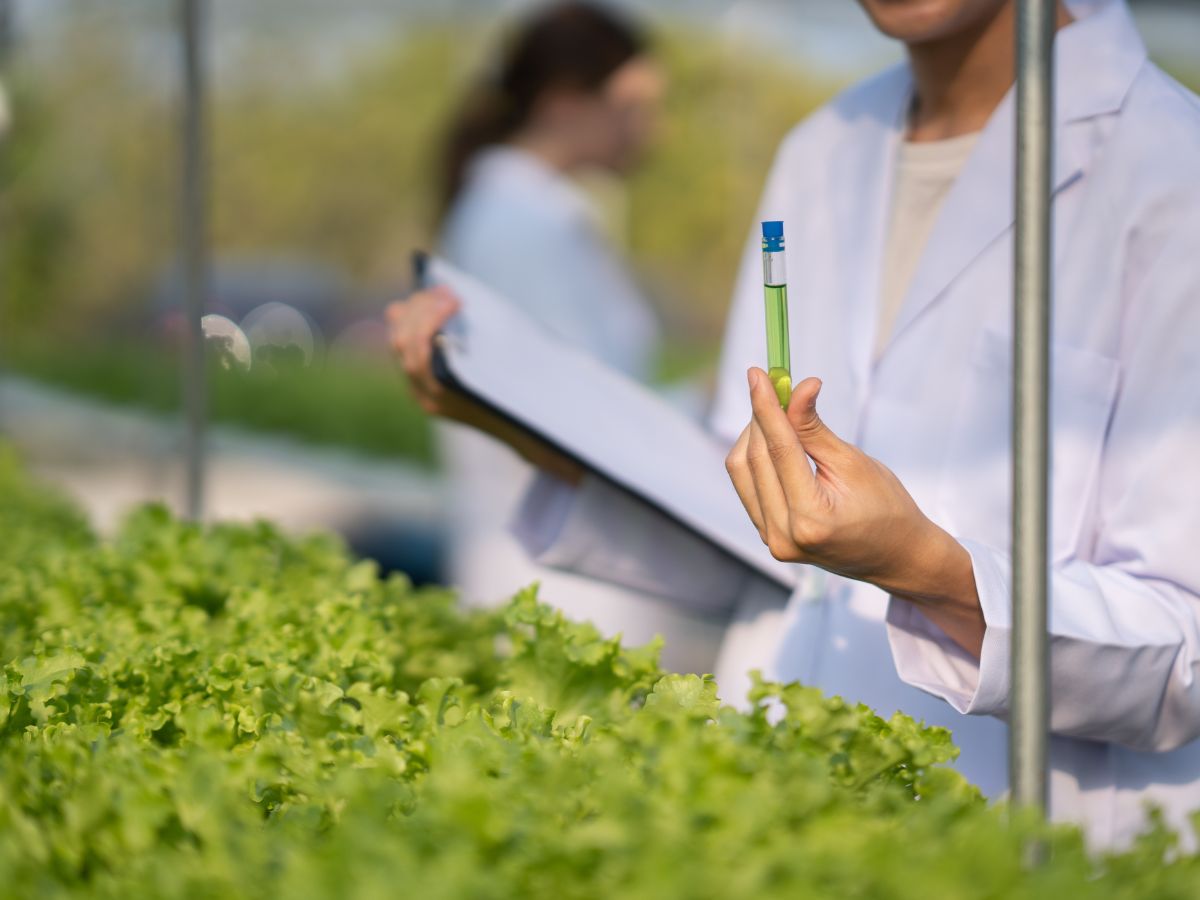The Future of Agricultural Science in India: Innovations, Challenges, and Opportunities

Agriculture has been the backbone of India's economy for centuries, providing livelihoods to over 50% of the population and contributing significantly to the nation's GDP. However, with a growing population, climate change, and diminishing natural resources, the agricultural sector faces unprecedented challenges. The future of agricultural science in India lies in harnessing innovation, technology, and sustainable practices to ensure food security, improve farmer livelihoods, and protect the environment. This article explores the key trends, challenges, and opportunities that will shape the future of agricultural science in India.
Join PSU Connect on WhatsApp now for quick updates! Click here
 Read Also : The Future of Programmers in the AI Era: Evolution, Challenges, and Opportunities
Read Also : The Future of Programmers in the AI Era: Evolution, Challenges, and Opportunities
1. Technological Advancements: The Rise of Smart Agriculture
The future of agriculture in India is intrinsically linked to the adoption of advanced technologies. Precision farming, artificial intelligence (AI), the Internet of Things (IoT), and drones are revolutionizing the way farmers cultivate crops and manage resources.
-
Precision Agriculture: By using GPS, sensors, and data analytics, farmers can optimize the use of water, fertilizers, and pesticides, reducing waste and increasing yields. For instance, soil health monitoring systems can provide real-time data to farmers, enabling them to make informed decisions.
-
AI and Machine Learning: AI-powered tools can predict crop diseases, pest infestations, and weather patterns, allowing farmers to take preventive measures. Companies are already developing AI-based apps that provide personalized recommendations to farmers based on their location and crop type.
-
Drones and Robotics: Drones are being used for crop monitoring, spraying pesticides, and even planting seeds. Robotics is also making its way into agriculture, with automated machines performing tasks like harvesting and weeding, reducing the dependency on manual labor.
2. Sustainable Farming Practices: Balancing Productivity and Ecology
As climate change intensifies, sustainable farming practices are no longer optional but essential. The future of agricultural science in India will focus on eco-friendly methods that ensure long-term productivity without compromising the environment.
-
Organic Farming: There is a growing demand for organic produce, both domestically and internationally. Agricultural scientists are working on developing organic fertilizers, biopesticides, and crop rotation techniques to reduce the reliance on chemical inputs.
-
Climate-Resilient Crops: Scientists are developing genetically modified (GM) and climate-resilient crop varieties that can withstand droughts, floods, and extreme temperatures. For example, drought-tolerant maize and flood-resistant rice are already being tested in various parts of India.
-
Water Management: With water scarcity becoming a critical issue, innovations like drip irrigation, rainwater harvesting, and water-efficient crops are gaining traction. Agricultural science will play a pivotal role in developing technologies that conserve water while maintaining crop yields.
3. Digital Transformation: Empowering Farmers with Knowledge
The digital revolution is transforming agriculture by bridging the gap between farmers and technology. Mobile apps, online marketplaces, and digital platforms are empowering farmers with access to information, markets, and financial services.
-
Farm Management Apps: Apps like Kisan Suvidha and CropIn provide farmers with weather forecasts, market prices, and expert advice, helping them make better decisions.
-
E-Marketing Platforms: Digital platforms like eNAM (National Agriculture Market) are connecting farmers directly with buyers, eliminating middlemen and ensuring fair prices for their produce.
-
Blockchain Technology: Blockchain can enhance transparency in the supply chain, ensuring that farmers receive fair compensation and consumers get authentic, traceable products.
4. Policy Support and Infrastructure Development
The future of agricultural science in India depends heavily on government policies and infrastructure development. Initiatives like the Pradhan Mantri Kisan Samman Nidhi (PM-KISAN) and the National Mission on Sustainable Agriculture (NMSA) are steps in the right direction. However, more needs to be done to address issues like fragmented landholdings, lack of access to credit, and inadequate storage facilities.
-
Research and Development (R&D): Increased investment in agricultural R&D is crucial for developing innovative solutions to address the challenges faced by farmers. Public-private partnerships can play a significant role in accelerating research and commercialization of new technologies.
-
Education and Training: Educating farmers about modern agricultural practices and technologies is essential for their adoption. Agricultural universities and extension services must be strengthened to provide hands-on training and knowledge dissemination.
5. Challenges to Overcome
While the future of agricultural science in India is promising, several challenges need to be addressed:
-
Small Landholdings: The majority of Indian farmers own small plots of land, making it difficult to adopt large-scale mechanization and technology.
-
Climate Change: Erratic weather patterns, rising temperatures, and unpredictable monsoons pose a significant threat to crop yields.
-
Farmer Distress: Low incomes, rising input costs, and debt continue to plague the farming community, leading to widespread distress.
-
Infrastructure Gaps: Inadequate storage facilities, poor transportation networks, and lack of access to markets hinder the growth of the agricultural sector.
6. Opportunities for Growth
Despite the challenges, the future of agricultural science in India is brimming with opportunities:
-
Agri-Startups: The rise of agri-startups is bringing innovation and entrepreneurship to the sector. From farm-to-fork solutions to agri-tech platforms, startups are addressing critical gaps in the agricultural value chain.
-
Export Potential: India has the potential to become a global leader in agricultural exports. By focusing on quality, sustainability, and value addition, Indian farmers can tap into international markets.
-
Youth Engagement: Encouraging the youth to take up agriculture as a viable career option can bring fresh perspectives and energy to the sector. Initiatives like agri-incubation centers and skill development programs can attract young talent.
Read Also : How to Get Bonuses after Downloading Melbet APK?
Conclusion
The future of agricultural science in India is a blend of tradition and innovation. By leveraging technology, adopting sustainable practices, and addressing systemic challenges, India can transform its agricultural sector into a powerhouse of productivity and resilience. The journey ahead is not without obstacles, but with collective efforts from scientists, policymakers, farmers, and entrepreneurs, India can achieve its vision of a prosperous and sustainable agricultural future. As the saying goes, "The farmer is the backbone of the nation," and by empowering farmers, we can ensure a brighter future for all.
Read Also : Know All About Astronauts: Heroes of Space Exploration